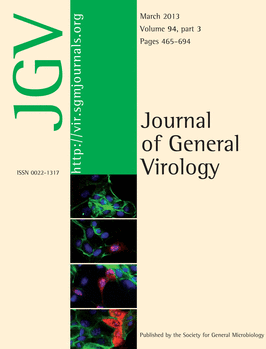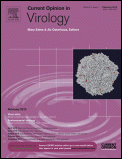
Journal of Virus Eradication
Scope & Guideline
Innovating solutions for global virus eradication.
Introduction
Aims and Scopes
- Viral Pathogenesis and Epidemiology:
Research in this area investigates the mechanisms by which viruses cause disease, their transmission dynamics, and the epidemiological trends associated with various viral infections. - Innovative Treatment Strategies:
The journal publishes studies on new antiviral therapies, treatment regimens, and clinical trial results aimed at improving outcomes for individuals infected with viral pathogens. - Vaccination and Immunization Strategies:
Focus on research related to vaccine development, efficacy studies, and public health initiatives to enhance vaccination coverage and combat viral outbreaks. - Public Health and Community Engagement:
Studies that explore community attitudes, knowledge gaps, and barriers to healthcare access among populations affected by viral infections, emphasizing the importance of community involvement in health initiatives. - HIV and Hepatitis Research:
A significant portion of the journal's content is dedicated to research on HIV and hepatitis viruses, including studies on prevention, treatment, and potential cures. - Emerging Viral Infections:
Research addressing newly identified viruses, potential outbreaks, and the global response to emerging infectious diseases, including zoonotic viruses.
Trending and Emerging
- Integrated Approaches to HIV Cure Research:
There is a growing emphasis on multidisciplinary strategies for HIV cure research, combining immunology, virology, and patient perspectives to develop more effective treatment paradigms. - Community Engagement in Viral Research:
An increasing number of studies focus on community dialogue and public engagement, aiming to improve understanding and participation in health initiatives related to viral infections. - Impact of COVID-19 on Viral Research and Public Health:
The COVID-19 pandemic has catalyzed a surge in research related to coronaviruses, vaccine development, and the implications of pandemic responses on other viral disease management. - Personalized Medicine in Viral Infections:
Emerging research is exploring personalized treatment approaches based on individual patient characteristics and viral genotypes, enhancing the effectiveness of antiviral therapies. - Long-Term Outcomes of Viral Infections:
A notable trend is the investigation of long-term health outcomes for individuals with chronic viral infections, particularly in relation to co-morbidities and quality of life.
Declining or Waning
- Viral Resistance Mechanisms:
Research focusing on the mechanisms of viral resistance, particularly in HIV and hepatitis virus treatments, has diminished, possibly due to the increasing effectiveness of current antiviral therapies. - Old Vaccination Strategies:
Studies that concentrate on traditional vaccination strategies without incorporating novel approaches or technologies have become less frequent, as the field leans towards innovative and comprehensive vaccination solutions. - Basic Virology Studies:
There is a noticeable decrease in publications centered solely on basic virology, as the journal has shifted towards applied research that directly impacts public health and clinical outcomes. - Non-HIV Viral Infections:
Research on non-HIV related viral infections, such as certain influenza strains or less prevalent viruses, appears to be waning as the journal prioritizes more impactful and globally relevant viral health issues.
Similar Journals

VIROLOGICA SINICA
Fostering Academic Excellence in Virology StudiesVIROLOGICA SINICA, published by KEAI PUBLISHING LTD, is a leading international journal dedicated to the field of virology. With an ISSN of 1674-0769 and E-ISSN of 1995-820X, this esteemed journal showcases cutting-edge research from 2006 to 2024, focusing on critical developments in Immunology, Infectious Diseases, Molecular Medicine, and Virology. As evidenced by its respectable positioning in the Q2 quartile of relevant categories and impressive Scopus rankings—such as Rank #20/80 in Virology—VIROLOGICA SINICA serves as an essential resource for researchers, professionals, and students aiming to deepen their understanding of viral pathogens and their impact on human health. While the journal does not currently offer open access, it remains an invaluable publication for those seeking to stay at the forefront of virology research. Its address is located at 16 Donghuangchenggen North St, Beijing, China, where it continues to foster academic excellence in the rapidly evolving landscape of virology.

JOURNAL OF GENERAL VIROLOGY
Unveiling viral mysteries, one study at a time.The JOURNAL OF GENERAL VIROLOGY, published by the Microbiology Society, is a premier academic journal dedicated to advancing the field of virology. Established in 1967, this influential journal covers a wide spectrum of research from basic virology to applied studies, serving as a vital resource for researchers, professionals, and students alike. With its ISSN 0022-1317 and E-ISSN 1465-2099, the journal is recognized for its rigorous peer-review process and high-quality publications, attaining a commendable Q2 ranking in the Virology category for 2023. The journal's focus on disseminating innovative findings and fostering critical discussions contributes significantly to the understanding of viral mechanisms, disease processes, and potential therapeutic strategies. Although it does not currently offer Open Access options, the journal remains accessible to the academic community, with a strong commitment to supporting virology research globally. As part of Scopus' top-tier rankings, illustrating its impact within the category of Immunology and Microbiology, the JOURNAL OF GENERAL VIROLOGY continues to play a pivotal role in shaping the future of virological science.

ACTA VIROLOGICA
Fostering collaboration in the fight against viral diseases.ACTA VIROLOGICA, a key journal in the field of virology and infectious diseases, is published by FRONTIERS MEDIA SA in Slovakia, serving the global scientific community with groundbreaking research since its inception in 1957. This esteemed journal, identified by ISSN 0001-723X and E-ISSN 1336-2305, provides a platform for rigorous peer-reviewed articles that contribute significantly to our understanding of viral pathogens and their implications in medicine. Positioned within the Q3 category for both Infectious Diseases and Miscellaneous Medicine, and a Q4 category for Virology in 2023, ACTA VIROLOGICA offers crucial insights into the evolving landscape of virology research. With its robust accessibility options, this journal appeals to a diverse readership, including researchers, healthcare professionals, and students, fostering a collaborative environment to advance the field of virology. The editorial objective is to enhance the catalog of knowledge pertaining to viruses, promoting innovative approaches in prevention, diagnostics, and treatment. Located at AVENUE DU TRIBUNAL FEDERAL 34, LAUSANNE CH-1015, SWITZERLAND, ACTA VIROLOGICA continues to be a vital resource in the collective efforts to combat viral disease challenges.

Current Opinion in Virology
Navigating the Evolving Landscape of VirologyCurrent Opinion in Virology, published by Elsevier Science Ltd, is a premier journal dedicated to advancing knowledge in the dynamic field of virology. Established as a respected source of comprehensive reviews and critical evaluations, this journal boasts an impressive impact factor and has achieved a distinguished Q1 category ranking for virology, signifying its pivotal role in the academic community. Serving researchers, professionals, and students alike, Current Opinion in Virology presents insightful contributions that delve into the latest developments, emerging trends, and pivotal challenges facing virology today. With its Scopus ranking placing it in the top 15% of its field, the journal provides unparalleled access to cutting-edge research that informs both basic and applied aspects of virology. Although not an open-access journal, it offers options for subscriptions that ensure accessibility to critical content. As the field continuously evolves, Current Opinion in Virology remains at the forefront, bridging the gap between research and clinical application, making it an essential resource for all in the virology community.

Viral Hepatit Dergisi-Viral Hepatitis Journal
Fostering collaboration for impactful discoveries.Viral Hepatit Dergisi - Viral Hepatitis Journal, published by GALENOS PUBL HOUSE, is a preeminent journal dedicated to advancing the field of viral hepatitis research. With an ISSN of 1307-9441 and an E-ISSN of 2147-2939, it serves as a vital platform for the dissemination of cutting-edge studies and clinical findings related to the prevention, diagnosis, and treatment of viral hepatitis. The journal aims to foster collaboration among researchers, medical professionals, and students by providing open access to high-quality research articles and reviews. Although specific impact metrics such as H-Index are not detailed, the journal is well-regarded in its field, contributing significantly to the understanding of viral hepatitis and its global implications. Positioned in Istanbul, Turkey, it draws upon a rich academic tradition, ensuring comprehensive coverage of the subject. This journal is indispensable for anyone invested in the fight against viral hepatitis, enriching the scholarly literature while promoting informed practices in healthcare.

Journal of Clinical Virology Plus
Shaping the future of virology with cutting-edge findings.The Journal of Clinical Virology Plus, published by Elsevier, is an essential resource for researchers and professionals in the fields of virology and infectious diseases. Launched in 2021, this journal aims to bridge the gap between clinical research and application, fostering a deeper understanding of viral pathogenesis, diagnostics, and therapeutic strategies. With an ISSN of 2667-0380, this open-access journal brings cutting-edge findings to the global scientific community, facilitating the rapid dissemination of knowledge critical for advancing public health. Positioned in the Q3 category for both Infectious Diseases and Virology in 2023, its ranking reflects its growing influence and relevance in the academic landscape. The journal strives to support innovative research, collaborative studies, and comprehensive reviews that address contemporary challenges in clinical virology. As it converges through the years from 2021 to 2024, Journal of Clinical Virology Plus aims to be a central hub for vital discussions and breakthroughs in this dynamic field.

VIRAL IMMUNOLOGY
Shedding light on the immunological responses to viral challenges.Viral Immunology, published by Mary Ann Liebert, Inc, stands as a prominent journal dedicated to advancing the understanding of the interplay between viral infections and host immune responses. With a strong focus on immunology, molecular medicine, and virology, the journal provides a platform for the dissemination of high-quality research findings and innovative methodologies that could shape the future of these critical fields. Although it currently holds a Q3 rating across its relevant categories and a respectable ranking within the Scopus database, Viral Immunology continues to strive for excellence with a commitment to publishing influential research that informs both academic and clinical practices. The journal accepts submissions in various formats—original research, reviews, and commentaries—catering to a diverse readership that includes researchers, professionals, and students engaged in the biological and medical sciences. Readers can anticipate insightful articles that address urgent challenges in immunological responses to viral infections, paving the way for new therapeutic strategies and public health initiatives.

Annual Review of Virology
Empowering researchers with in-depth analyses in virology.Annual Review of Virology is a premier scholarly journal published by Annual Reviews, dedicated to advancing the field of virology through comprehensive and insightful reviews. Since its inception in 2014, this journal has established itself as a leading resource for researchers, professionals, and students alike, achieving an impressive Q1 ranking in the field of Virology and a Scopus rank of #10 out of 80 in its category, placing it in the 88th percentile. The journal features in-depth analyses of the latest developments in virology, encompassing various aspects such as viral pathogenesis, host interactions, and antiviral strategies, thereby catering to a diverse audience seeking the most relevant and cutting-edge information. Although it is not Open Access, Annual Review of Virology remains an indispensable tool for those engaged in virology research, transforming complex findings into accessible knowledge that shapes future investigations and practical applications in the field.

REVIEWS IN MEDICAL VIROLOGY
Illuminating the Pathways of Infectious Disease ScienceREVIEWS IN MEDICAL VIROLOGY is a premier academic journal published by Wiley, dedicated to advancing the field of virology and infectious diseases. Established in 1991, this journal has gained a reputable standing, holding a Q1 ranking in both Infectious Diseases and Virology as of 2023, with impressive Scopus rankings placing it at #17 out of 344 in the realm of Medicine - Infectious Diseases, and #8 out of 80 in Immunology and Microbiology - Virology. This reflects its substantial impact factor and contribution to ongoing research and scholarship. While it is not an Open Access publication, REVIEWS IN MEDICAL VIROLOGY offers vital insights and comprehensive reviews that cater to a diverse audience including researchers, healthcare professionals, and students pursuing knowledge in medical virology. The journal serves as a vital resource for understanding the complexities of viral pathogens and the evolving landscape of antiviral therapeutics, making it an essential read for those poised at the forefront of infectious disease research.

Frontiers in Virology
Unlocking the Secrets of Virus BiologyFrontiers in Virology, published by FRONTIERS MEDIA SA, is an innovative open-access journal dedicated to advancing the understanding of viral biology, pathogenesis, surveillance, and control strategies. With the rapid evolution of viral threats, this journal serves as a critical platform for researchers, professionals, and students to disseminate and access high-quality research, reviews, and perspectives in virology. The journal places a strong emphasis on interdisciplinary approaches, promoting collaborative efforts that drive breakthroughs in the field. While the specific impact factor and H-index details are currently unavailable, Frontiers in Virology is committed to rigorous peer review and integrity in scientific publishing. Authors and readers will benefit from the extensive reach provided by open access, making groundbreaking insights available to a global audience, thus contributing significantly to the ongoing dialogue in virology and public health.